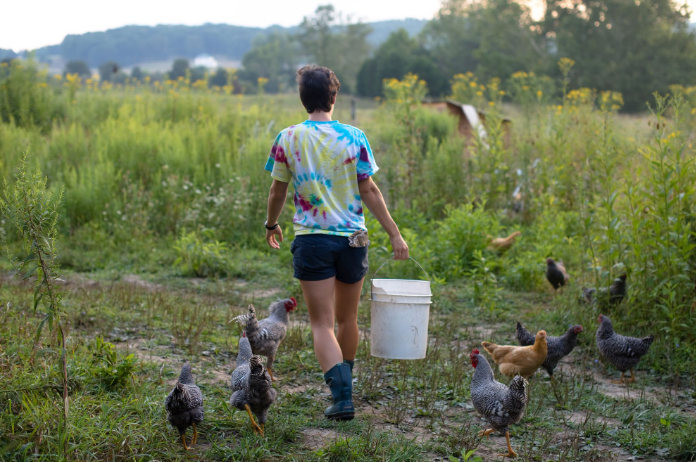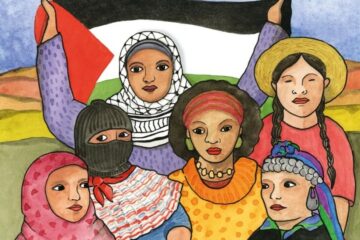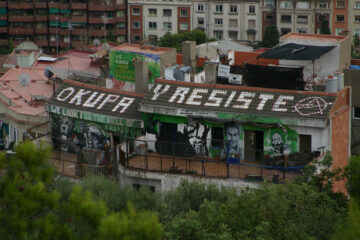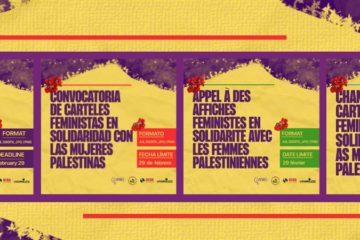The United Nations Declaration on the Rights of Peasants (UNDROP) was adopted in 2018. La Via Campesina led the movement towards this achievement, along with key allies who were instrumental in bringing it to the adoption stage. Other social movements such as the World March of Women, Friends of the Earth International, and different grassroots organizations, academic institutions and allies were all critical in supporting LVC in bringing this important rights’ framework to adoption, and helping in its implementation phase.
The people who worked for years to have the Declaration adopted always knew the implementation would be also an uphill battle. They knew that for the struggle to continue strong, a common tool was required in order to share knowledge about the Declaration and to advance the collective understanding of how to move it forward. The Defending Peasants’ Rights (DPR), launched in 2022, is a product of a number of these allies that came together to build a knowledge sharing network. During the 8th International Conference of La Via Campesina in 2023, Capire and DPR team worked together in a video with women from all around the world about the work of women in the struggle for peasant rights and the importance of UNDROP. Watch it bellow:
Peasant communication tools
DPR is thought as a tool of information, first for the people whose rights are in UNDROP and allies already working on the subject, and for the second for a broad audience, since peasants’ rights should be everyone’s concern. “We don’t want people to just read something inspiring, we want them to talk to each other. We aim to be a tool box where peasants can find what they need to fight for their rights”, explains Coline Hubert, one of the coordinators of DPR.
The most read article published in the website is about how the Supreme Court in Honduras used UNDROP’s article on the right to seeds to declare a “Monsanto law” unconstitutional. In the website there are different materials, from articles, to e-books and interviews, about the UNDROP and its applications worldwide. Coline says that they are all complementary: “They all have different point of view and interest. Peasants’ rights are a bottomless well of inspiration. We really are trying to offer different way to approach them, from political, to legal or linked with other subject”.
There is an editorial board that curate the website, made up of people from academic institutions, NGOs, and members of all of the 10 global regions that make up La Via Campesina. By having this team, DPR tries to guarantee the publication of content that represents each of the regions. “The goal of it is to be an accessible and participatory platform that encapsulates all of the broad knowledge that are being created and shared about the Declaration around the world. It’s not only a place where you can find academic articles or legal publications, but it’s also somewhere that you can find popular education materials and in multiple languages”, explains Jessie MacInnis, from the National Farmers Union of Canada and a member of the editorial board.
Such platforms are more than just a compilation of articles. In doing so, they help to share strategies across borders among organizations to actually implement the rights enshrined in the Declaration at different levels. About the reach of the Declaration internationally, Jessie explains that “by having access to different materials from all around the world, we can see how organizations are lobbying institutions, how they’re organizing in their communities, what sorts of popular education materials they’re using.”
Bringing the declaration to life
The UNDROP is not just an international instrument, it’s actually a very localized tool for the struggles in the territory, and integrates a set of strategies of articulation and communication of the international peasants’ movement. In a complex world of international global governance instruments that can seem a little murky and opaque, the website shows the many scales the Declaration is being implemented.
There are several examples of uses of UNDROP, such as the case law coming from Canada, Kenya or Honduras. In all these instances, UNDROP was used by lawyers and judges to protect peasants’ rights. In Ecuador, the National Peasant Coordination Eloy Alfaro [CNC Eloy Alfaro, in Spanish], member of CLOC-La Via Campesina, won the ratification of UNDROP by the Legislative Assembly and the Constitutional Court. Coline also mentions the work of the peasant union Serikat Petani Indonesia (SPI): “In the country where the struggles of peasants’ right were born, people are putting in place Food Sovereignty Areas, directly realizing the right to food sovereignty recognized in UNDROP”.
At the international level, it has recently been established a dedicated working group in the Human Right Council of the United Nations. This mechanism will monitor the implementation of the UNDROP and be able to publish thematic reports, to do country visits and receive complaints. To Coline, “even if the UN feels very far away for peasants, it can be used to start a dialogue with states”.
By sharing personal stories, a tool like DPR allows people to better understand how in a very regional and contextual way the declaration can be implemented. Coline argues that “today and in the future, spreading information on UNDROP and peasants’ rights will be essential, the more people will know about them and will understand and believe in them, the more chance we will have to have meaningful change. Peasant’s rights are human rights and this need to be known. They are both law and a political horizon that we should all strive for”.
_____________________________
By Capire and Defending Peasants Rights




